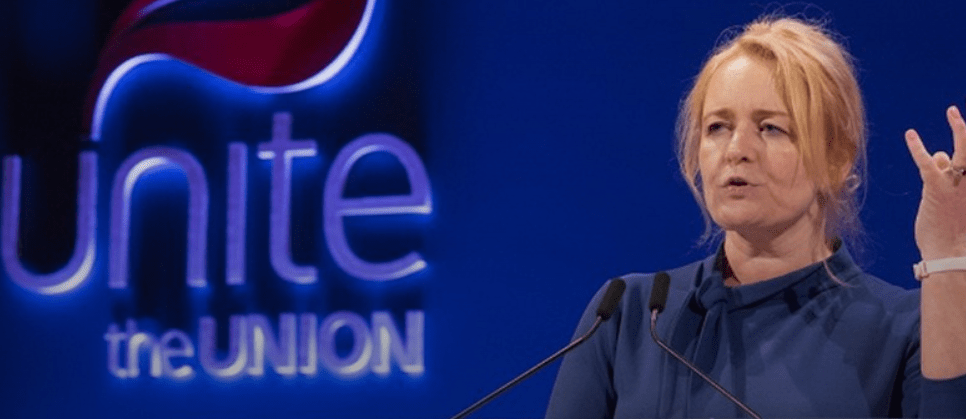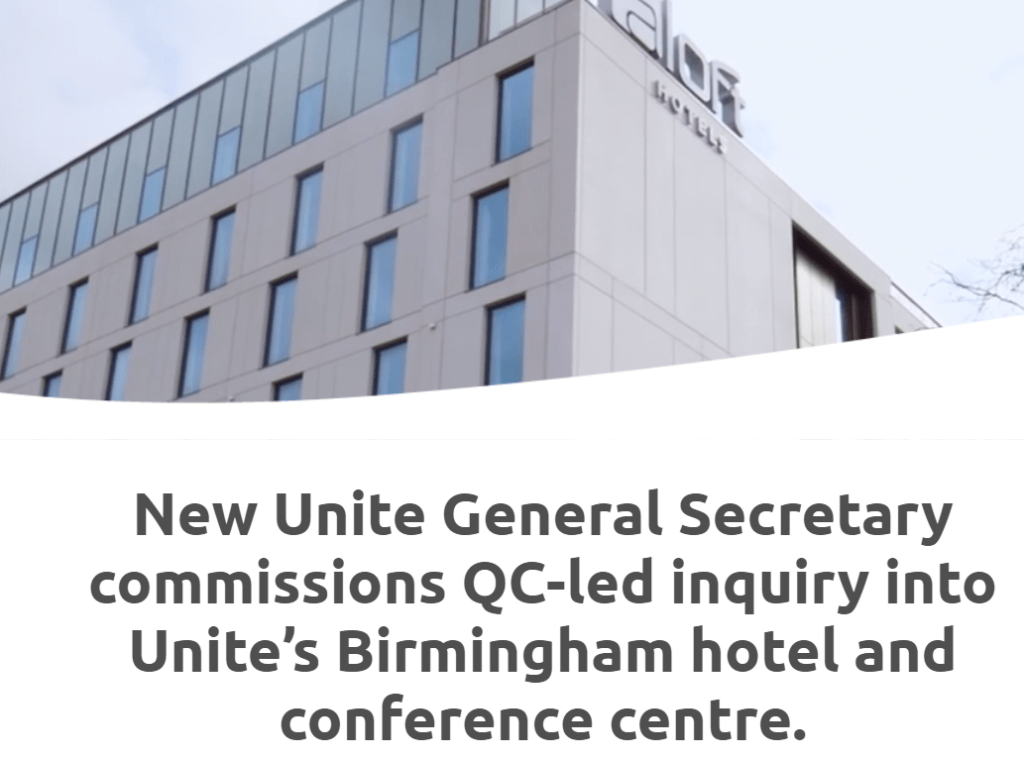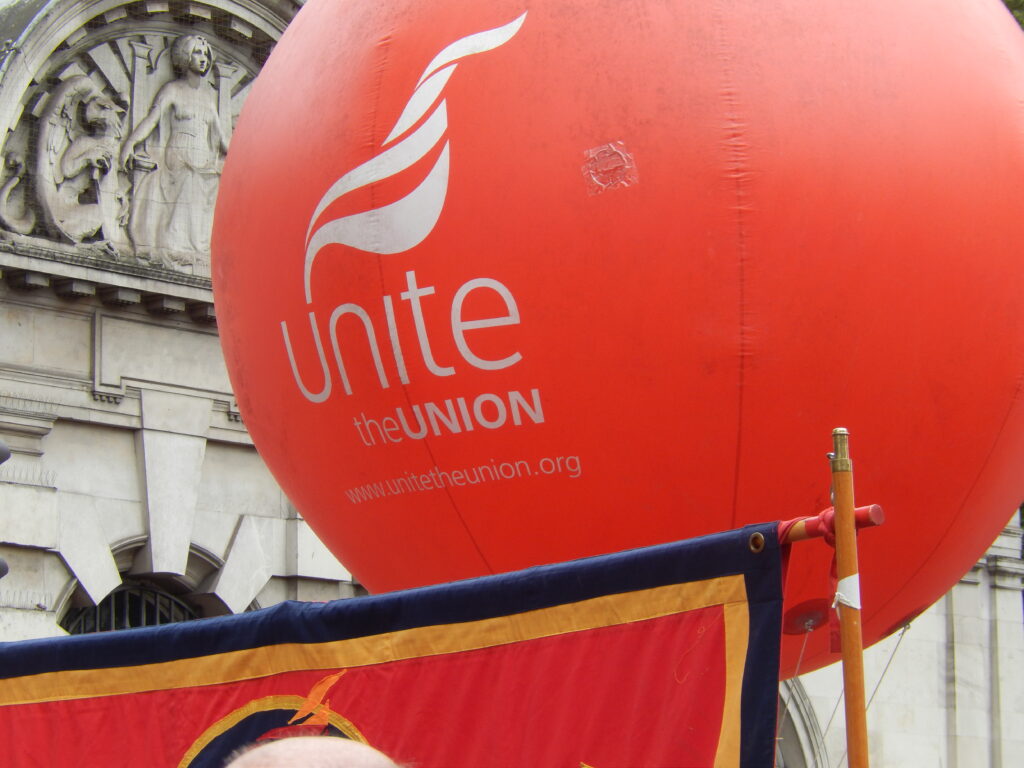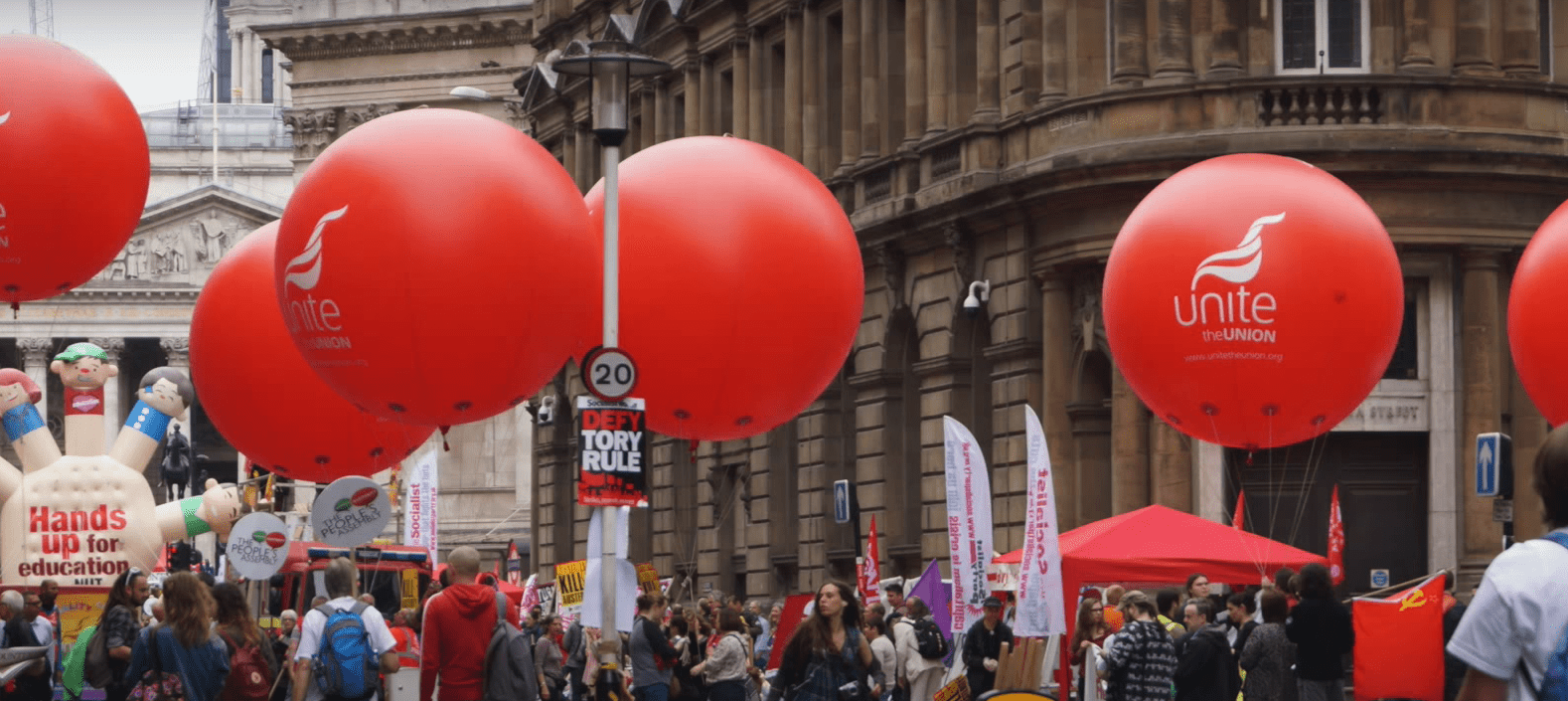By William F. Ward
Elections for the EC of Unite, the UKs second largest union, are underway and nominations have just closed. Unite is important as both the most industrially active union in the country and as a major supporter of the Labour Party, paying about £1.5 million a year in affiliation fees.
A look at the nominations reveals a more-or-less straight contest between the Morning Star influenced United Left (UL) grouping, which was Len McCluskey’s power base, and a new grouping based around recently elected General Secretary, Sharon Graham. Sharon Graham has brought a new industrial focus to the union and has begun to challenge the sometimes macho culture of Unite. But to succeed, she needs a supportive Executive.
There is no right-wing slate – they seem to have disappeared into oblivion after the massive defeat of their candidate in 2017, despite having been backed by the Tory press and funded by New Labour figures.

Sharon Graham’s slate does appear to be a bit of a hotch-potch, with members of the SWP, the Socialist Party and Socialist Alternative sharing a platform with new industrial reps who have come to prominence in strikes like those at pallet-makers CHEP or Serco at Barts and Royal London hospitals. It also includes some who have quit the UL, disillusioned with its control freakery, and as well as some erstwhile mainstays of the right wing ‘Unite Now’ faction. The word is that Sharon’s slate was only pulled together at the last minute, after nominations opened.
Some independent lefts could win
There are also some interesting independent left candidates nominated – two from the Construction rank and file who are up against one ex-UCATT candidate, left-wing blogger Graham Durham in the retired members section, and Keith Henderson in general industries. The turnout will probably be so low that these independent lefts could win, if they can mount a good campaign.
In Scotland, two candidates from the full-time officer-controlled faction Progressive United Left Scotland (PULS) are up against two supporters of Sharon Graham, health worker Helen McFarlane, and Ray Morell from the Aerospace section.
Over recent years, the UL degenerated from a relatively open left organisation to being purely an election machine for Len McCluskey, until in the end even he abandoned it. The unhealthy relationship of the UL with senior officers allowed the General Secretary to keep dissident voices off ‘the slate’ and also to remove them from ‘the slate’ if they asked too many awkward questions at the EC. The consequence was a lack of challenge to the senior officers of the union from a lay member EC.

Unite hotel and conference centre
One of the results of this is the scandal around the building of the Unite hotel and conference centre in Birmingham, which cost £101mn, but which was revealed at a recent EC to be worth only £71mn. Sharon Graham’s inquiry into the project was blocked from seeing any invoices which is hardly a good sign. EC members who asked questions about what was going on were side-lined and, in some cases, thrown off the UL slate.
One sign of the UL’s lack of confidence in their politics and record is that in some regions they are now calling themselves ‘Members First’ – traditionally the name taken by right wing groupings in the union. A further indication of the weakening of their machine is that several of the UL candidates have failed to get enough nominations to appear on the ballot, leaving the Sharon Graham candidates uncontested in the Automotive, Civil Air Transport, Not For Profit, Engineering Manufacturing and Steel, Finance and Legal, and Government Department sectors.
The greatest weakness of Unite EC elections is the low turnout, often a percentage in single figures. The main cause, of course, is the Tory legislation which forces the union to rely on paper postal votes from home addresses, unlike the Tory Party leadership election could be done on line: click, click, vote. One journalist was reputed to have even enrolled his pet tortoise in the Tory Party in the run up to the Liz Truss election.

The big majority of members locked out of higher union bodies
But also Unite does unfortunately lock its activists out of union structures. For instance, with rare exceptions, only the union reps elected to the RISCs (Regional Industrial Sector Committees) can be elected to the National Industrial Committees, Regional Committees or Conference. As the union has a million members and at most 3,600 reps who participate in the RISCs. That means that all these higher union bodies are based on 0.36% of the membership and over 99% are in effect are locked out.
The position is even worse in relation to Labour Party affiliation. If we assume that the rate of membership of Unite members is 3 times the national average of 1%, it means that out of a million members, maybe 30,000 are individual members of the Labour Party.
For a new open, democratic left organisation
Even of those 30,000, only those who are also CLP delegates, maybe a third at most, are even eligible to take part in the Regional Labour Party Committees. Again, 99% of the members are locked out – by Unite’s own rulebook. The union can hardly be surprised if the outcome is a lack of engagement of members in the union elections and structures.
The answer is to open up the union structures to branch delegates, closer to the rank and file, and for Sharon Graham to set up a new open, inclusive, and democratic broad left organisation. This could have both regional, industrial, and national structures, with regular open and democratic meetings at all levels, where all political and industrial issues could be aired.
As well as agreeing left candidates, it could develop real roots in all sectors where Unite organises, promoting greater member participation and strengthening the organisation. An open, democratic left could support Sharon Graham’s reforming agenda and industrial militancy, but without simply becoming an election machine, or her own ‘personal’ organisation.



